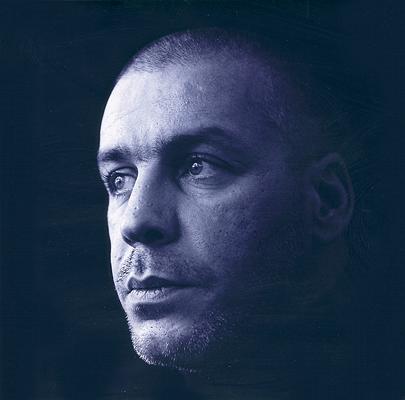|
<< -- 2 -- Tess Crebbin THE BASIC ESSENCE

TC: Amazingly, when you first decided to create a new orchestra and book a concert hall for rehearsals, you were able to get some of the world's best instrumentalists to heed your call and come to Dresden. How did you pay for that, I mean, how does one fund this kind of thing?
SH: We did not have to pay for it. We contacted the best musicians in some of the greatest orchestras around the world, told them what we wanted to do and asked if they would be interested. As it turned out, there were plenty who wanted the chance to play the kind of music they wanted but their orchestral contracts did not include in their schedule. So in their spare time they came to Dresden, free of charge, to perform with us. It was quite astonishing, really.
TC: Indeed. So it was a kind of modern music revolution. Torsten, you were another refugee from the current trends in contemporary classical music. Having studied composition in Germany, you turned your back on your native country and spent fourteen years in Japan. Why, and what were you doing there?
Torsten Rasch: Like Sven, my influences were Mahler and so on. As a contemporary composer, the style of composition that was required of me here in Germany, atonal and the like, was not what I wanted to do. I wanted to create beauty, not destruction. So I went to Japan, where I initially taught German to make ends meet. Then I started getting work as a composer. Aside from orchestral works, I also composed a lot of film music over there, which I found to be a wonderful outlet for my creativity.
TC: And then, somehow, the two of you got together to create this remarkable recording of a Lieder Cycle that clearly shows the influences of Mahler, of Wagner's Wesendonk Lieder, of Alban Berg. The kind of composition that does not exist these days anymore ...
SH: True and that is a good point. I had taken stock of the contemporary market in classical music and found that nobody composed these types of deep, orchestral Lieder cycles anymore. In today's instant gratification society we don't want to hear Lieder about death and loss, we want fun. And yet, as the continued popularity of composers like Mahler and their Lieder shows, there is a market for them. But who even writes these kinds of texts anymore nowadays?

Till Lindemann. Photo © Jens Rötzsch/Ostkreuz
|
TC: Enter Till Lindemann. His book of poetry, Messer (Knife), had been very successful at the Eichborn Publishing House. He is a German poet who, just like yourselves, seems to favor a return to values of the past. Conrad Ferdinand Meyer, to whom one of the poems in his book is dedicated, is one of his main influences. But one also is reminded of the Joycean-influenced poems of the Irish actor and writer Gabriel Byrne, especially when comparing Byrne's prose from the book Pictures in my Head with the Nele poems of Lindemann. How did this book come to be, which started Lindemann's career as an author and thus eventually led to the current CD project?
Gert Hof: I am a close friend of Lindemann's and had organised and edited this book for Eichborn. My background is as director of theatre and opera. So Rammstein had approached me one day to ask if I could direct their stage shows. They wanted a real theatre show for their concerts, complete with light effects and the lot. So they gave me the texts in advance, for me to create my light show around them. But only a fraction of the texts Lindemann wrote were actually used for Rammstein. The rest was really good poetry that was just there, and so I suggested to him that we turn this into a book. I also took the photographs for the book.
Continue >>
Copyright © 17 October 2004
Tess Crebbin, Germany

|

